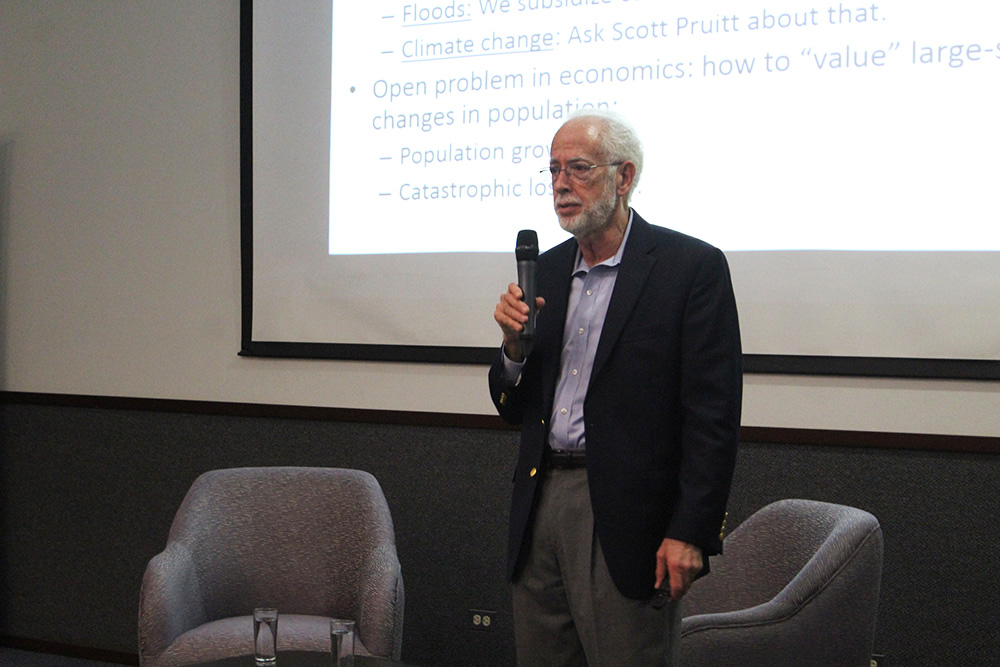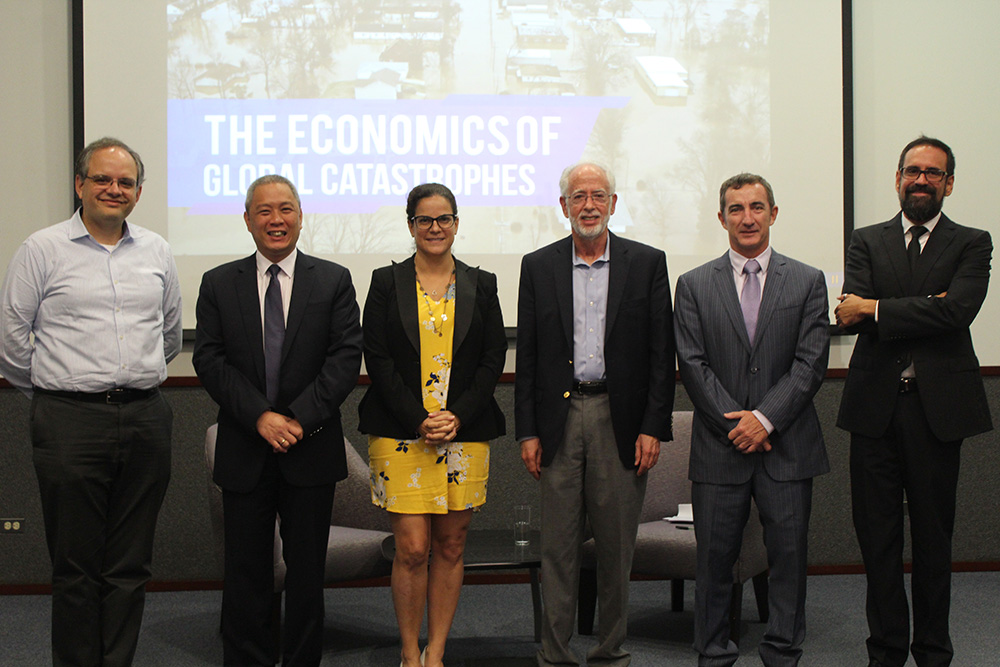In 1918, the so-called "Spanish flu" caused the death of 5% of the population of Europe and the United States, between 40 and 50 million lives were taken by a virus that spread with great speed and attacked both people in vulnerable ages and adults. This is one of the references that Robert Pindyck uses to explain the economic magnitude of catastrophes. For the Bank of Tokyo-Mitsubishi professor at the MIT Business School, the possibility of a catastrophic event such as a pandemic and even nuclear terrorism is even more evident and closer than the effects of climate change itself.
"There are catastrophes that could happen sooner than one triggered by climate change such as bioterrorism, nuclear terrorism, nuclear war, and pandemics and megavirus. They could be worse than climate change and there would be less time to adapt", said Pindyck in the event "Economy of Catastrophes", organized by Universidad del Pacífico Schools of Economics and Engineering.
As an example, he highlighted that there is a 4% probability that an attack of nuclear terrorism will occur every year; however, while a storm occurs frequently, the impact is usually low.

Robert Pindyck during his presentation at Universidad del Pacífico
How to study a catastrophe?
About the way in which the economic impact of catastrophes is analyzed, he stressed that "all the studies are carried out in isolation, eliminating the possibilities of other catastrophes. We found that we cannot marginalize variables when we are going to conduct cost and benefit studies. A catastrophe is not marginal; it causes a serious impact on the economy".
For Pindyck, it is important to become aware of the fact that "the catastrophes we mentioned can kill people. The challenge lies in how to turn this information into a willingness to pay in order to avoid human losses".
The event was opened by Roberto Urrunaga, Associate Dean of the School of Economics and Finance at Universidad del Pacífico, who highlighted that "it is an honor to receive a professor of the standing of Professor Pindyck, who we know from his texts, of obligatory reading in the field of econometrics and capital investment

Authorities attending the event
Humanitarian logistics
This talk takes place in the midst of the university's efforts to contribute to research on urban and humanitarian logistics, especially in the face of natural disasters. "The conference by Robert Pindyck, is related to some of the School of Engineering lines of research: urban and humanitarian logistics with a focus on characterizing the city, its resilience, hospital logistics, the management of donations", highlighted Mario Chong.
He added that the objectives in the face of eventualities are to establish the active entities in the supply chain; such as suppliers, facilities, distributors and others; and to restore the flow of products and services.